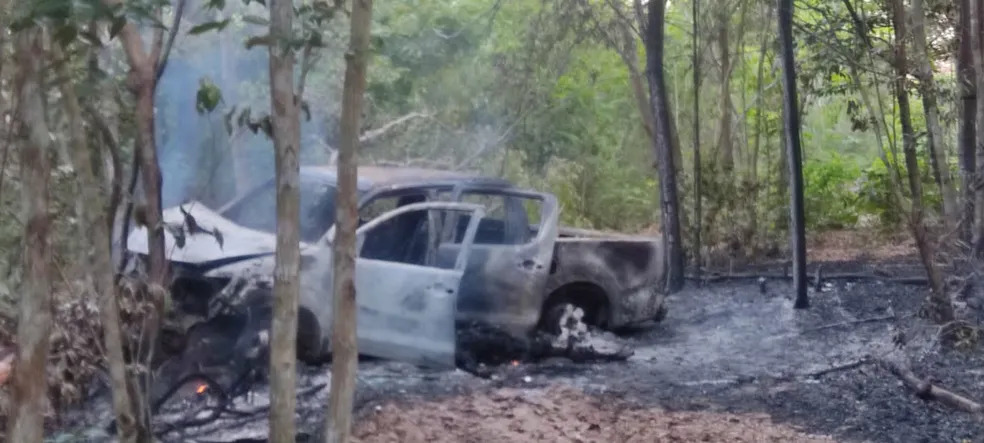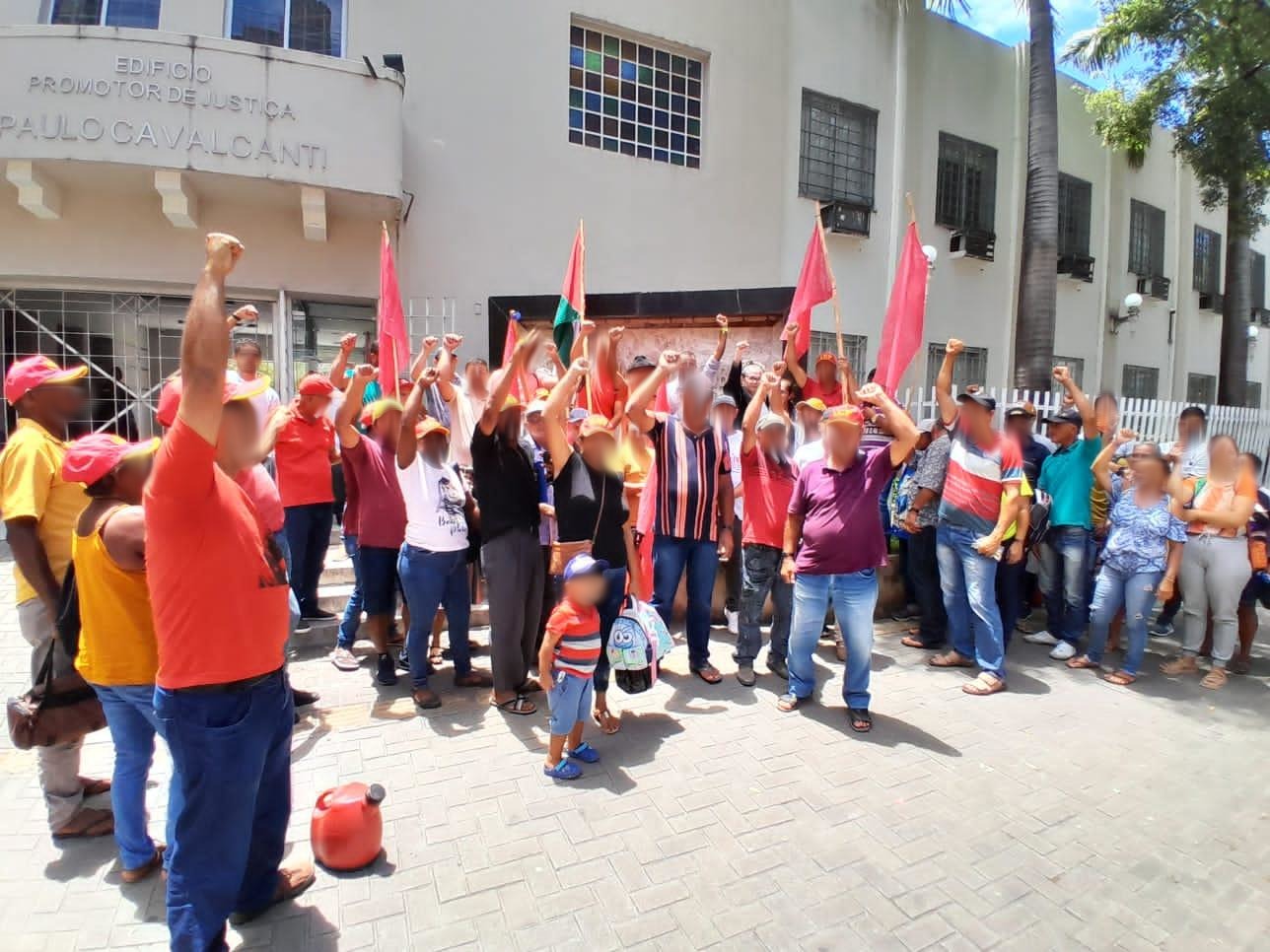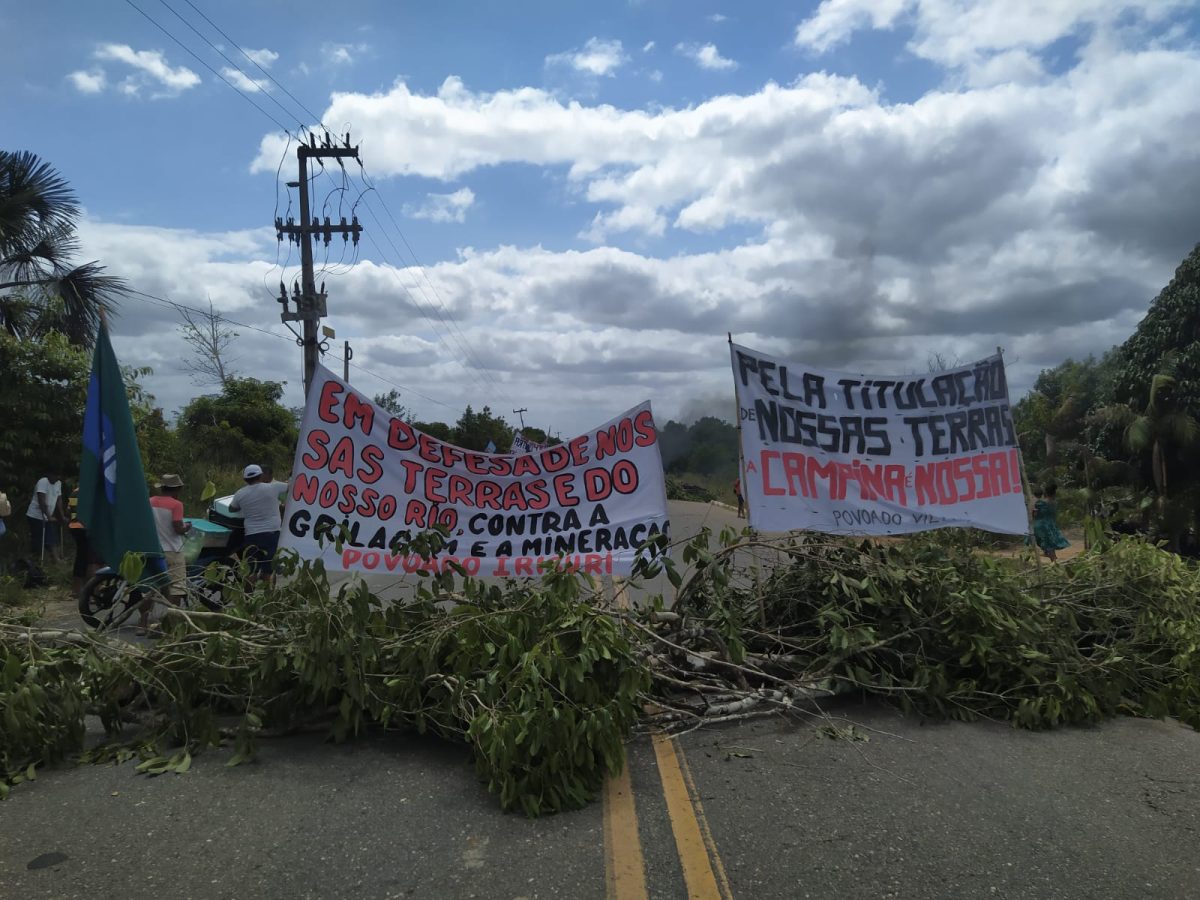On November 10, in the municipality of Barra do Corda, three pick-up trucks belonging to a convoy of armed mercenaries who were on their way to illegally clear the village of Carrasco in the service of large landowners were lured into an armed ambush. During this armed ambush, the attackers shot at all three pick-up trucks and set one on fire.
The special thing about the ambush on the group of mercenaries in the service of the large landowner is that ten of the mercenaries attacked were police officers hired by large landowners. Among the police mercenaries was a military police sergeant who was found dead and burned. Among the police officers, seven are from the municipality of Balsas, one is said to be from Barra do Corda and one is a member of a criminal investigation unit. They are all currently in custody and are being charged on the basis of forming a paramilitary group.
The interim indictment also concludes that the policemen hired as mercenaries were involved in a large-scale land grab with other land grabbers from other Brazilian states and were organized by a fugitive landowner.
A Nova Democracia further writes that this incident shows the continuous links between the military police and paramilitary groups, both of which operate in the countryside as armed gangs in the service of large landowners and are responsible for the repression of the masses in the struggle for land through evictions, torture and executions.

On November 16, a group of 60 poor peasants led by the League of Poor Peasants of the State of Pernambucano from the José Ricardo Revolutionary Region took part in a hearing held by the Pernambuco Public Prosecutor's Office to draw up new property relations based on a map that would allow the poor peasants to demarcate their territory from that of the large landowner Célia Lira. The peasants were represented by the democratic and progressive Brazilian Association of People's Lawyers.
The latifundia's lawyer demanded that the peasants contribute to a map that could be handed over to the landowner so that she could use it as a basis for either selling the land to the peasants through the National Land Credit Program or evicting the peasants. This plan was rejected by the peasants. They stated that the land belonged to them and that there was no reason for them to participate in clarifying the land boundaries for the Latifundium to subsequently take action against them.
The public prosecutor's office rejected the peasants' objection, but ordered the landowner to prove that she owned the land that was the subject of the map within 30 days. Thus, the landowner did not manage to achieve a victory against the organized peasants.

Also on 16 November, peasants from the state of Maranhão mobilized to blockade two rural roads in the region of Gurupi, in the municipality of Junco do Maranhão. The peasants, organized by the "Union of Communities in Struggle", demonstrated against the expropriation of their land and demanded the legalization of the land on which they live. For decades, the peasants' territory has been the scene of a struggle against land theft in the region, with court cases being processed very slowly by state authorities in collusion with the large landowners.
In particular, the peasants denounced the threat and conversion of their land by heavily armed men in the service of the large landowners, as well as the cancellation of false title deeds and maps issued to the local large landowners. In a subsequent statement, the "Union of Communities in Struggle" announced that it considered its blockade action a success. A meeting with state authorities was arranged for the following Monday at which the peasants were to be heard. Just how seriously the reaction in Maranhão takes the peasants' struggle can be seen in the participation of the Minister of Public Security, representatives from the Ministry of Justice and the Public Prosecutor's Office for Agrarian Conflicts in this meeting, among others.

Overall, all the incidents and actions reported here speak clearly about the great development of the struggle for land in Brazil. Everywhere the poor peasant masses are rising up under the leadership and support of the revolutionaries and with the development of powerful actions are achieving victory after victory. More and more often the peasant occupations are legally recognized, while the legal attacks by the big landowners, above all by the mobilizations of struggle in the countryside and on the streets, are repulsed. The armed ambush of November 10 on the armed mercenaries of the landlords also shows that the landlords, who have always kept the rural population in great exploitation and oppression, can no longer rely on their armed henchmen without detrimental consequences for the landlords and their henchmen.
All images are taken from the respective linked articles from AND.










